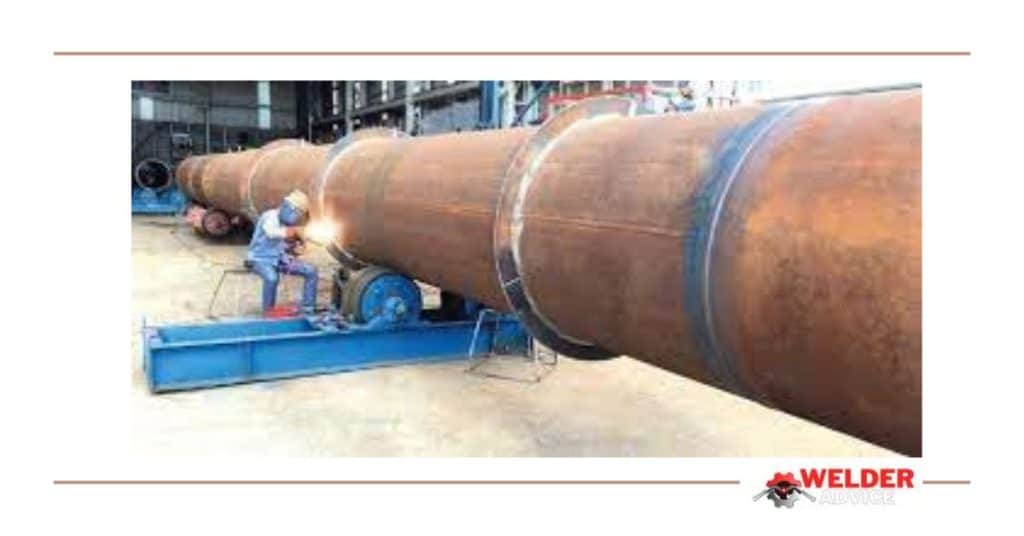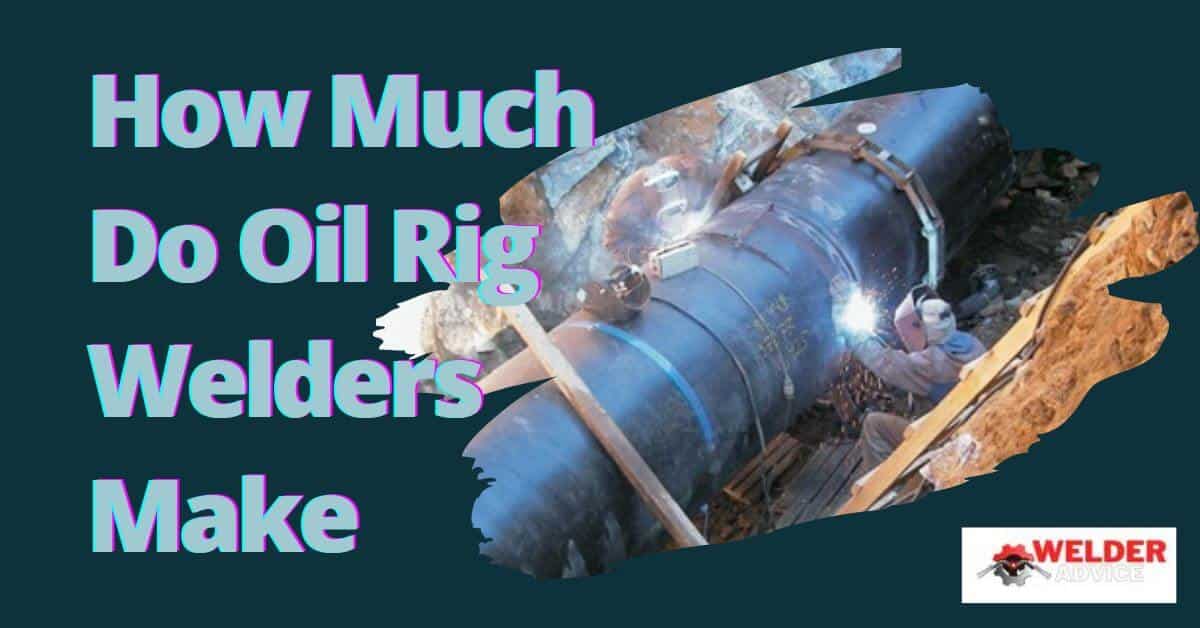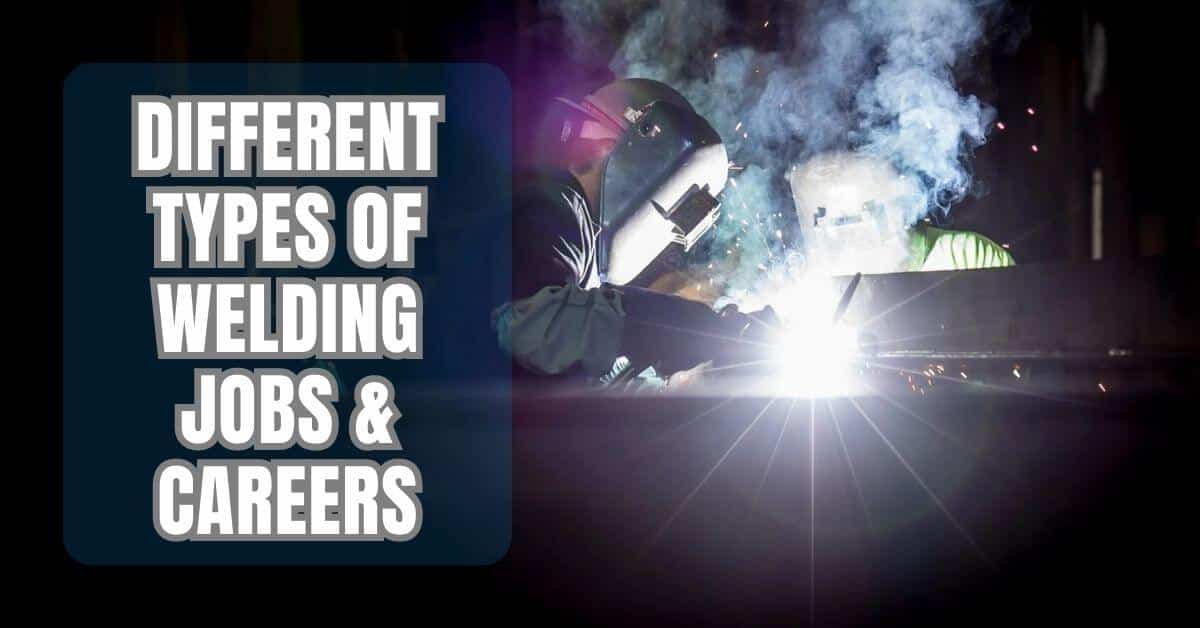As an oil rig welder, you play a crucial role in the energy industry, responsible for maintaining and repairing the structures and machinery that extract and process oil and gas. But with such important work comes the question: how much do oil rig welders make?
In this article, we’ll dive into the factors that impact an oil rig welder’s salary, provide an overview of the earning potential in different parts of the world, and offer tips for maximizing your income as a welder in the oil and gas industry.
- Oil Rig Welders: How Much Do They Make in an Hour?
- Average Daily Earnings of Oil Rig Welder
- Average Weekly Salary
- Average Monthly Salary for Oil Rig Welders
- Oil Rig Welders: How Much Do They Make in a year?
- Who Is an Oil Rig Welder?
- How to become an oil rig welder
- USA cities with the highest salaries for oil rig welders
- Do Oil Rig Welders Receive Bonuses and Benefits?
- Average Oil Rig Welder’s Salary by Experience
- Factors That Affect an Oil Rig Welder’s Salary
- Oil Rig Welders’ Earnings Around the World
- Oil Rig Welders Make in the United States
- Oil Rig Welders Make in Canada
- Oil Rig Welders Make in the United Kingdom
- Maximizing Your Income as an Oil Rig Welder
- Final Thoughts
Oil Rig Welders: How Much Do They Make in an Hour?
Oil rig welders earn an average hourly wage of $39 in the oil and gas industry.
Average Daily Earnings of Oil Rig Welder
Oil rig welders can make $295 per day. However, it depends on how many hours you work. Welders on oil rigs work six months a year, while others work only three. The majority of oil rig welders work eight-hour days.
Average Weekly Salary
According to the US Bureau of Labor Statistics, if oil rig welders work 40 hours a week, they earn $1,483 per week.
Average Monthly Salary for Oil Rig Welders
Welders on oil rigs make an average of $6400 per month.
Oil Rig Welders: How Much Do They Make in a year?
82,400 of the US’s 230,000 welders are employed on oil rigs, according to the BLS. An oil rig welder makes $77,200 a year.
Who Is an Oil Rig Welder?
Welders who work on oil rigs are known as oil rig welders. In which natural gas and oil are extracted from the earth using large structures. Welders work offshore in a challenging, often hazardous environment while performing high-pressure welding tasks. Among the tasks they may perform are welding pipes, structural steel, and other components of oil rigs.
In challenging offshore conditions, oil rig welders work long hours. And must have a strong work ethic and the ability to work well under pressure. They also need to have a high level of physical stamina, excellent hand-eye coordination, and the ability to pay close attention to detail.
How to become an oil rig welder

To become an oil rig welder, you will typically need to complete a welding program at a technical school or community college. And gain experience through an apprenticeship or on-the-job training. You will also need to pass certifications in welding safety and the specific types of welding used on oil rigs.
Additionally, some companies may require workers to pass a physical examination and drug test. It’s important to note that oil rig welding is physically demanding and dangerous, so you should be in the good physical condition and comfortable working in high-pressure environments.
USA cities with the highest salaries for oil rig welders
Here is a table of the top five best-paying cities for oil rig welders in the United States, based on data from the Bureau of Labor Statistics (BLS) from May 2022:
| City | Median | Annual Wage |
|---|---|---|
| Houston | TX | $66,020 |
| Corpus Christi | TX | $62,220 |
| Beaumont | TX | $61,660 |
| New Orleans | LA | $59,660 |
| Lafayette | LA | $59,530 |
It’s important to note that these numbers are just estimates and should be used as a general guide. Actual salaries may vary based on several factors, including the specific employer, workplace region, and experience and education level.
Do Oil Rig Welders Receive Bonuses and Benefits?
Oil rig welders can receive bonuses and benefits in addition to their salary. The specific bonuses and benefits that an oil rig welder may receive will depend on the employer and the employment contract terms.
Average Oil Rig Welder’s Salary by Experience
Here is a table showing the average oil rig welder’s salary by the level of experience, based on data from the Bureau of Labor Statistics (BLS) from May 2022:
| Experience | Annual Wage |
|---|---|
| Less than 1 year | $36,140 |
| 1 to 4 years | $43,020 |
| 5 to 9 years | $47,410 |
| 10 to 19 years | $53,480 |
| 20 or more years | $59,130 |
It’s important to note that these numbers are just estimates and should be used as a general guide. Actual salaries may vary based on several factors, including the specific employer, the region where you work, and your level of education and training.
Factors That Affect an Oil Rig Welder’s Salary
Several factors can influence how much you can earn as an oil rig welder. Some of the most significant include:
Experience
As with many skilled trades, your experience level significantly determines your salary as an oil rig welder. Entry-level welders may start making less than more experienced welders, but with time and practice, you can expect your salary to increase.
Location
The region where you work can also impact your earning potential as an oil rig welder. In general, oil and gas industry jobs tend to be more highly paid in countries with a higher cost of living, such as the United States and Canada. On the other hand, welders in countries with a lower cost of living may earn less, although the cost of living may also be lower in these locations.
Type of work
The type of work you do as an oil rig welder can also affect your salary. Welders who specialize in a particular type of welding, such as subsea welding, may be in higher demand and, therefore, able to command a higher salary.
Company and industry
The company you work for and the industry in which you work can also impact your salary as an oil rig welder. The salary range for some industries may be higher than for others, such as offshore drilling. Similarly, larger companies may be able to pay more than smaller ones.
Oil Rig Welders’ Earnings Around the World
Now that we’ve covered some factors that can impact an oil rig welder’s salary let’s look at earning potential in different parts of the world. Remember that these are general estimates, and salaries may vary based on the above factors.
Oil Rig Welders Make in the United States
According to the U.S. Bureau of Labor Statistics, the median annual wage for welders was $43,480 as of May 2022. However, this figure can vary significantly based on the location and industry in which you work. For example, welders working in the oil and gas extraction industry had a median annual wage of $63,480, while those working in the construction industry had a median annual wage of $46,590.
Oil Rig Welders Make in Canada
In Canada, the average annual salary for welders is C$61,000 ($47,000), according to data from PayScale. Again, this figure can vary based on location and industry. Welders working in Canada’s oil and gas industry may earn more, while those working in other industries may earn less.
Oil Rig Welders Make in the United Kingdom
The average annual salary for welders in the United Kingdom is £32,500 ($44,000), according to data from the National Careers Service. As with the U.S. and Canada, this figure can vary based on location and industry.
Also Read:
- How Long Does JB Weld Take to Dry
- How to Get Into Aerospace Welding
- How to Become an Underwater Welder
Maximizing Your Income as an Oil Rig Welder
If you’re looking to maximize your income as an oil rig welder, there are a few steps you can take:
Gain experience
As mentioned earlier, your experience level is a major factor in determining your salary as an oil rig welder. Make sure to take on as many welding projects as possible and continually improve your skills to increase your earning potential.
Specialize
Specializing in a particular type of welding, such as subsea welding, can increase demand and allow you to command a higher salary. Consider taking specialized training or certification courses to increase your expertise in a particular area.
Negotiate
When it comes time to negotiate your salary, make sure to do your research and have a clear understanding of your worth in the market. Don’t hesitate to negotiate a higher salary or benefits package if you believe you deserve it.
Consider location
As we discussed earlier, the location in which you work can significantly impact your salary. If you’re willing to relocate, consider looking for oil rig welding jobs in regions with a higher cost of living and higher salaries.
Final Thoughts
As an oil rig welder, you play a vital role in the energy industry and can expect to earn a competitive salary. However, your earning potential will depend on various factors, including your experience level, location, type of work, and company. By gaining experience, specializing in a particular type of welding, negotiating effectively, and considering location, you can maximize your income as an oil rig welder.
I hope this article provides a comprehensive overview of the earning potential for oil rig welders and helps you understand how to maximize your income in this field. We are happy to answer any additional questions you may have.






